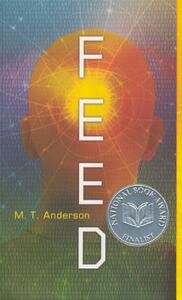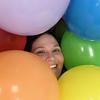Take a photo of a barcode or cover
This was so good I don’t want to say anything about it, to spoil it. Just really intelligent and thought provoking and well done, and I can’t believe the year it was written in, which don’t look it up beforehand. Prescient. Weird. Engaging. Niggling. Will be thinking about this one for a long time.
emotional
reflective
tense
slow-paced
Plot or Character Driven:
Character
Strong character development:
Yes
Loveable characters:
Complicated
Diverse cast of characters:
No
Flaws of characters a main focus:
Yes
dark
medium-paced
Plot or Character Driven:
A mix
Strong character development:
No
Loveable characters:
No
Diverse cast of characters:
No
Flaws of characters a main focus:
Yes
challenging
informative
slow-paced
dark
reflective
sad
fast-paced
Plot or Character Driven:
A mix
Strong character development:
Complicated
Loveable characters:
Complicated
Diverse cast of characters:
No
Flaws of characters a main focus:
Yes
I just reread this book at the age of 29 after first reading it in 8th grade around 2009. It has stuck with me deeply for all these years, but I was still bowled over by how much more relevant it has become in the past 15 or so years.
What stood out to me then: the horrors of the feed, Titus’s attempts to be creative and poetic and profound, the dangers of consumerism.
What stood out to me now that went over my head back then: Violet’s emotional seesaw between resistance and desire to fit in and enjoy a “normal” life, the impossibility of parenting a child with the feed, the global instability, the extreme prices.
I don’t know if enjoyed is the right word, but I once again found it immensely impactful. I was particularly struck by MT Anderson’s author’s note at the end of the edition I read, explaining that more so even than the technology, the book is about a world in which we “dream in advertisements”.
Before re-reading, I was contemplating and doubting whether I should purchase it for the middle school library I work in. It’s from 2002, after all. I was sure when my memory was refreshed it would seem dated, out of touch. But aside from the prevalence of physical malls, I’m pretty sure the world depicted will be even more familiar to my students now than it was to me in 2009.
What stood out to me then: the horrors of the feed, Titus’s attempts to be creative and poetic and profound, the dangers of consumerism.
What stood out to me now that went over my head back then: Violet’s emotional seesaw between resistance and desire to fit in and enjoy a “normal” life, the impossibility of parenting a child with the feed, the global instability, the extreme prices.
I don’t know if enjoyed is the right word, but I once again found it immensely impactful. I was particularly struck by MT Anderson’s author’s note at the end of the edition I read, explaining that more so even than the technology, the book is about a world in which we “dream in advertisements”.
Before re-reading, I was contemplating and doubting whether I should purchase it for the middle school library I work in. It’s from 2002, after all. I was sure when my memory was refreshed it would seem dated, out of touch. But aside from the prevalence of physical malls, I’m pretty sure the world depicted will be even more familiar to my students now than it was to me in 2009.
Like, Unit, I forgot like how thingie - how meg this thing is.
I forgot how much I loved this book. I remembered how much it impacted me because I spent years trying to find this book (and in doing so, found [b:Feed|7094569|Feed (Newsflesh Trilogy, #1)|Mira Grant|https://images.gr-assets.com/books/1408500437s/7094569.jpg|7351419] which is an amazing series!) because I couldn't remember the name of the book or the author. I was searching descriptions and other crazy shit.
Then I found the name of the book. And finally got to finish it. The first time I read it, I was substitute teaching (basically sitting in a classroom while the student teacher taught) and I wasn't able to completely finish it. So I wrote down the name and author so I could hit up the library later that week - and promptly lost my note to myself. Yeah...
Finally, a few years later, I was doing another search for the book, and got lucky! This book is incredible. Amazing. Meg. Youch. I love it. Last week, a friend was asking for book recommendations and I wanted to recommend this book. So naturally, I had to read it again. So worth it.
I think it qualifies as a Utopian Dystopia, right? Right.
I forgot how much I loved this book. I remembered how much it impacted me because I spent years trying to find this book (and in doing so, found [b:Feed|7094569|Feed (Newsflesh Trilogy, #1)|Mira Grant|https://images.gr-assets.com/books/1408500437s/7094569.jpg|7351419] which is an amazing series!) because I couldn't remember the name of the book or the author. I was searching descriptions and other crazy shit.
Then I found the name of the book. And finally got to finish it. The first time I read it, I was substitute teaching (basically sitting in a classroom while the student teacher taught) and I wasn't able to completely finish it. So I wrote down the name and author so I could hit up the library later that week - and promptly lost my note to myself. Yeah...
Finally, a few years later, I was doing another search for the book, and got lucky! This book is incredible. Amazing. Meg. Youch. I love it. Last week, a friend was asking for book recommendations and I wanted to recommend this book. So naturally, I had to read it again. So worth it.
I think it qualifies as a Utopian Dystopia, right? Right.
I can't remember the last time I devoured a book over the weekend like I did this one. How accurately Anderson predicted the near future - now the present - is scary, to say the least. Did he expect the horrific progression of society to usher in this soon? We may not have reached catastrophic levels of pollution to be losing our hair, but our increased usage of fossil fuels may have very well guaranteed our eminent demise. Sorry to be all doom and gloom about the issue, but having just come across this thread this morning after finishing Feed the night before... This is quite coincidence I felt needed to be shared. It's a somber, dark awakening, however, I'm still hopeful. We can still minimize the damage done and prevent further from happening, and that change ultimately must start on the individual level. Now before this review blows too off course, let me just say that I almost gave this book 4 stars because of Titus in the final act. Giving my qualms some thought though made me realize that his reaction to Violet's impending and eventual death were very human. We'd all like to think we can handle tragedy in a predictable, logical way, until we're thrown into it without warning. That's when we realize dealing with death is complicated and messy. Compounded with the fact Titus is a spoiled teen who's never had to contemplate mortality until his closest friend's passing, the whole situation is upsetting and unfair.
At its heart, this novel is strongly anti-capitalist and refuses to pull any punches in satirizing the corporate-dominant culture/tyrannical world power America has become. I'll leave you with this quote from Violet's father:
At its heart, this novel is strongly anti-capitalist and refuses to pull any punches in satirizing the corporate-dominant culture/tyrannical world power America has become. I'll leave you with this quote from Violet's father:
"We Americans ... are interested only in the consumption of our products. We have no interest in how they were produced, or what happens to them ... what happens to them once we discard them, once we throw them away."
informative
mysterious
sad
fast-paced
Plot or Character Driven:
A mix
Strong character development:
Complicated
Loveable characters:
Complicated
Diverse cast of characters:
No
Flaws of characters a main focus:
Yes
challenging
dark
emotional
tense
medium-paced
Plot or Character Driven:
Character
Strong character development:
Yes
Loveable characters:
Complicated
Diverse cast of characters:
Yes
Flaws of characters a main focus:
Yes





